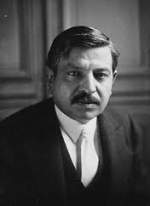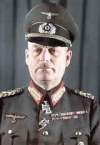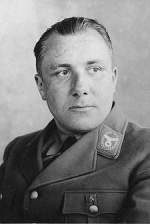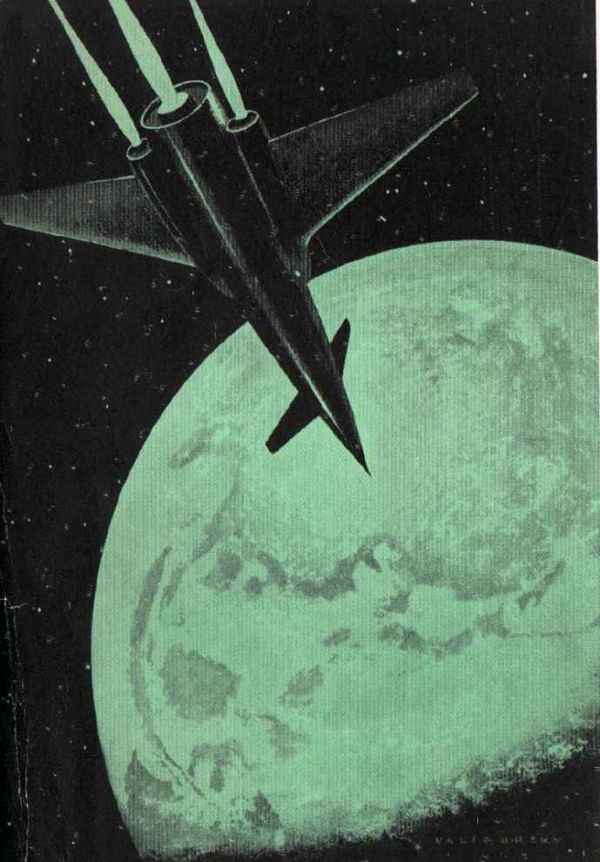
February 3
1859 Birth: Hugo Junkers: an innovative German engineer, as his many patents in varied areas (gas engines, aeroplanes) show. The name Junkers is mainly known in connection with aircraft, which were produced under this name for the Luftwaffe during World War II. By then, however, the Nazi government was running his businesses, and Hugo Junkers himself was gone. Note: Hugo will die on the same date in 1935.
1915 Death: Veljko Cubrilovic, Danilo Ilic and Misko Jovanovic, Archduke Franz Ferdinand's assassins:
On this date in 1915, three of the Black Hand conspirators who had assassinated Archduke Franz Ferdinand in Sarajevo the previous June were hanged for treason and murder as the World War that assassination ignited engulfed Europe. You could say it was too little, too late.
Ironically, the gunman who actually got the Archduke, Gavrilo Princip, was too young to receive the death penalty under Austro-Hungarian law‑‑barely short of his 20th birthday, a more liberal standard for capital responsibility than even present-day human rights standards require.
In fact, that was true of five of the eight student nationalists convicted; [Austria] accordingly punished them for murdering the heir to its throne and involving it in a ruinous war, with prison sentences of no more than 20 years. Three of the under-aged five (Princip included) contracted fatal tuberculosis cases in custody during World War I; the other two, Cvijetko Popovic and Vaso Cubrilovic, outlived the Habsburg Empire by decades.
Three remained, old enough to swing for turning Europe into a charnel house: Vaso's older brother Veljko (a schoolteacher), Danilo Ilic (a newspaper editor) and Misko Jovanovic (a businessman).
But if their names aren't familiar, and their comedy assassination plot succeeded almost in spite of themselves, these forgotten radicals still rank among the midwives of modernity for the global cataclysm unleashed by their deed, for its calamitous aftershocks of nationalism and ideology, and for the second war that succeeded the horrors of the first.
1917 World War I: U.S. breaks diplomatic relations with Germany:
On this day in 1917, President Woodrow Wilson speaks for two hours before a historic session of Congress to announce that the United States is breaking diplomatic relations with Germany.
Due to the reintroduction of the German navy's policy of unlimited submarine warfare, announced two days earlier by Chancellor Theobald von Bethmann Hollwegg, Wilson announced that his government had no choice but to cut all diplomatic ties with Germany in order to uphold the honor and dignity of the United States. Though he maintained that We do not desire any hostile conflict with the German government, Wilson nevertheless cautioned that war would follow if Germany followed through on its threat to sink American ships without warning.
Later that day, Count von Bernstorff, the German ambassador to the U.S., received a note written by Secretary of State Robert Lansing stating that The President has directed me to announce to your Excellency that all diplomatic relations between the United States and the German empire are severed, and that the American Ambassador at Berlin will be immediately withdrawn, and in accordance with such announcement to deliver to your Excellency your passports. Bernstorff was guaranteed safe passage out of the country, but was ordered to leave Washington immediately. Also in the wake of Wilson's speech, all German cruisers docked in the United States were seized and the government formally demanded that all American prisoners being held in Germany be released at once.
On the same day, a German U-boat sunk the American cargo ship Housatonic off the Scilly Islands, just southwest of Britain. A British ship rescued the ship's crew, but its entire cargo of grain was lost.
In Berlin that night, before learning of the president's speech, German Foreign Secretary Arthur Zimmermann told U.S. Ambassador James J. Gerard that Everything will be alright. America will do nothing, for President Wilson is for peace and nothing else. Everything will go on as before. He was proved wrong the following morning, as news arrived of the break in relations between America and Germany, a decisive step towards U.S. entry into the First World War. (History.com)
1919 Various:
Russia: Kiev is captured by the Bolsheviks. "The new communist ideology of tolerance was very short-lived, and as early as 1918 the Jews were victims of several vicious attacks." The scourge of pogroms which erupted in January 1919 in the northwest province of Volhynia spread during February and March to the cities, towns, and villages of many other regions of Ukraine.
League of Nations: First meeting takes place in Paris:
Between 1920 and 1925, the organization helped diffuse a border dispute between Sweden and Finland, prevented Austria from economic collapse, prevented the outbreak of a war in the Balkans, and had successfully begun the administration of the German Saar region. Despite these successes, however, the league had been forced to cope with some very serious handicaps that would ultimately undermine its effectiveness.
1924: Various:
Death: Woodrow Wilson:

Woodrow Wilson, the 28th president of the United States, dies in Washington, D.C., at the age of 67.
In 1912, Governor Wilson of New Jersey was elected president in a landslide Democratic victory over Republican incumbent William Howard Taft and Progressive Party candidate Theodore Roosevelt. The focal point of President Wilson's first term in office was the outbreak of World War I and his efforts to find a peaceful end to the conflict while maintaining U.S. neutrality. In 1916, he was narrowly reelected president at the end of a close race against Charles Evans Hughes, his Republican challenger.
In 1917, the renewal of German submarine warfare against neutral American ships, and the "Zimmerman Note," which revealed a secret alliance proposal by Germany to Mexico, forced Wilson to push for America's entry into the war.
At the war's end, President Wilson traveled to France, where he headed the American delegation to the peace conference seeking an official end to the conflict. At Versailles, Wilson was the only Allied leader who foresaw the future difficulty that might arise from forcing punitive peace terms on an economically ruined Germany. He also successfully advocated the creation of the League of Nations as a means of maintaining peace in the postwar world. In November 1920, President Wilson was awarded the Nobel Peace Prize for his efforts at Versailles.
In the autumn of 1919, while campaigning in the United States to win approval for the Treaty of Versailles and League of Nations, Wilson suffered a severe stroke that paralyzed his left side and caused significant brain damage. This illness likely contributed to Wilson's uncharacteristic failure to reach a compromise with the American opponents to the European agreements, and in November the U.S. Senate refused to ratify the Treaty of Versailles or the League of Nations.
During his last year in office, there is evidence that Wilson's second wife, Edith Bolling Galt Wilson, may have served as acting president for the debilitated and bed-ridden president who often communicated through her. In March 1921, Wilson's term expired, and he retired with his wife to Washington, D.C., where he lived until his death on February 3, 1924. Two days later, he was buried in Washington's National Cathedral, the first president to be laid to rest in the nation's capital. (History.com)
USSR: Alexei Ryko is elected President of People's Commission, succeeding Lenin.
1933 Nazi Germany: Adolf Hitler: The new Chancellor, secretly addresses the top leaders of the German armed forces, setting out his aims for the new Germany he envisions. [See: Was Adolf Hitler 'Forced' Into the War?]
1934 Holocaust: Liberation: an anti-Semitic publication, publishes the text of a speech supposedly given by Benjamin Franklin during the US Constitutional Convention (1787-1788) in which he is alleged to have remarked that if the immigration of Jews to the United States is not restricted, the Jews will ruin the country. Historians later conclude that this document, if it ever did exist, was a forgery. (THP)
1939 Holocaust: Hungary: A bomb thrown into a Budapest synagogue kills one Jewish worshipper and injures many others. (THP)
1941 World War II: Vichy France: The Nazis forcibly restore Pierre Laval to office in unoccupied Vichy France. Laval:

I want to tell you that I think this war is a great mistake. If we had come to terms with Mussolini, as I wanted to do, we might have held Germany. That is no longer possible. We have given most of Europe to Hitler. Let us try to hold on to what we have got left. I am a peasant from the Auvergne. I want to keep my farm, and I want to keep France. Nothing else matters now.
1943 Stalingrad: Hitler announces the fall of Stalingrad to the German people. He declares four days of mourning, with the closure of all places of entertainment. [See: What Were Adolf Hitler's Major Blunders?]
1944 World War II: Various:
Holocaust: Another trainload of Jews leaves Paris for Auschwitz. It is the 67th such deportation in almost two years. Of 1,214 deported only 26 survive the war. (THP)
U.S. troops capture the Marshall Islands
On this day, American forces invade and take control of the Marshall Islands, long occupied by the Japanese and used by them as a base for military operations.
The Marshalls, east of the Caroline Islands in the western Pacific Ocean, had been in Japanese hands since World War I. Occupied by the Japanese in 1914, they were made part of the "Japanese Mandated Islands" as determined by the League of Nations. The Treaty of Versailles, which concluded the First World War, stipulated certain islands formerly controlled by Germany—including the Marshalls, the Carolines, and the Marianas (except Guam)—had to be ceded to the Japanese, though "overseen" by the League. But the Japanese withdrew from the League in 1933 and began transforming the Mandated Islands into military bases. Non-Japanese, including Christian missionaries, were kept from the islands as naval and air bases—meant to threaten shipping lanes between Australia and Hawaii—were constructed.
During the Second World War, these islands, as well as others in the vicinity, became targets of Allied attacks. The U.S. Central Pacific Campaign began with the Gilbert Islands, south of the Mandated Islands; U.S. forces conquered the Gilberts in November 1943. Next on the agenda was Operation Flintlock, a plan to capture the Marshall Islands.
Adm. Raymond Spruance led the 5th Fleet from Pearl Harbor on January 22, 1944, to the Marshalls, with the goal of getting 53,000 assault troops ashore two islets: Roi and Namur. Meanwhile, using the Gilberts as an air base, American planes bombed the Japanese administrative and communications center for the Marshalls, which was located on Kwajalein, an atoll that was part of the Marshall cluster of atolls, islets, and reefs.
By January 31, Kwajalein was devastated. Repeated carrier- and land-based air raids destroyed every Japanese airplane on the Marshalls. By February 3, U.S. infantry overran Roi and Namur atolls. The Marshalls were then effectively in American hands—with the loss of only 400 American lives. (History.com)
1945 Various:

World War II: Allied Operation Thunderclap begins as US aircraft drop nearly 3,000 tons of explosives on the Zentrum (Berlin's city center). Nazi jurist Roland Freisler is killed running for shelter during a session of the 'Peoples Court' and Gestapo headquarters is damaged so badly that the prisoners have to be moved to quarters that still actually boast walls. The Reich Chancellery suffers a number of direct hits. Goebbels' Propaganda Ministry is wrecked. Not one of Goering's Luftwaffe fighters is observed defending the city. Goering is roundly denounced by almost everyone in the bunker, and Speer will later recall that 'For a long time he (Goering) had been made the scapegoat for all the failures of the Luftwaffe. At the situation conferences, Hitler habitually denounced him in the most violent and insulting language before the assembled officers. He must have been even nastier in the scenes he had with Goering privately. Often, waiting in the ante-room, I could hear Hitler shouting at him.' (Read, Speer)
From Wilhelm Keitel's SBS interview:
After the attack on Hamburg and the joint attacks which killed all the cultural monuments in Germany, it was quite obvious that there was no defense against it. The concentration of flak only meant that flak had to be withdrawn from some other place. We all had to admit that the Fuehrer was right in demanding more and more flak back in the days when he argued with Todt. In that manner, he proved the predictions which we didn't take seriously enough. He was saying the only defense is flak and more flak, and this must be supplemented by extremely fast bombers that hit back with the same type of attack . . . .
There were trains of thought which the Fuehrer would entirely keep to himself. We could not exercise any influence especially because it was well known that the Fuehrer himself knew all the reasons very well and had discussed all these things with Goering alone. If somebody else than Goering had been the Supreme Commander of the Air Force, he would have taken a different attitude. [See: Why Didn't Adolf Hitler Fire Hermann Goering?]
He became State Secretary at the Reich Ministry of Justice and President of the Volksgerichtshof (People's Court). He was born in Celle on October 30, 1893. He saw active service during WW I, he was an officer cadet in 1914, by 1915 he was a lieutenant and decorated before becoming a prisoner of war in Russia in October 1915. He returned to Germany in 1920 a convinced Communist to study law at Jena University, becoming a Doctor of law in 1922. From 1924 he worked as a lawyer in Kassel and also as a city councilor for the Volkisch-Social bloc. He joined the Nazi Party in July 1925. In 1932 he was elected as a National Socialist delegate to the Prussian Landtag, and the next year to the Reichstag. Also in 1933 he was appointed ministerial secretary at the Prussian Ministry of Justice, becoming under-secretary in June 1933. In June 1934, Freisler was named under-secretary in the new Reich and Prussian Ministry of Justice. From 1939, he was instrumental in the creation of special courts for "courts-martial on the domestic front." He was present at the Wannsee Conference as representative for Franz Schlegelberger, the minister in the Reich Ministry of Justice. As President of the Volksgerichtshof from August 1942 (replacing Otto Thierack), the "Hanging Judge" presided over around 1,200 trials, nearly all ended with the death penalty. He is killed during the above mentioned air raid on Berlin on this day.
World War II: Martin Bormann writes a letter from the bunker to his 'beloved Mummy-girl' (his wife) in Obersalzberg:

The Reich Chancellery garden is an amazing sight: deep craters, fallen trees, and the paths obliterated by a mass of rubble and rubbish. The Fuehrer's residence was badly hit several times; all that is left of the winter gardens and the banquet hall are fragments of the walls; and the entrance hall on the Wilhelmstrasse, where the Wehrmacht guard was usually mustered, has been completely destroyed.
In spite of it all, we have to go on working diligently, for the war continues on all fronts! Telephone communications are still very inadequate, and the Fuehrer's residence and the Party Chancellery still have no connection with the outside world . . . . And to crown everything, in this so-called government quarter we still have no light, power or water supplies! We have a water cart standing in front of the Reich Chancellery, and that is our supply for cooking and washing up! And worst of all, so Mueller tells me, are the water closets. These Kommando pigs use them constantly, and not one of them thinks of taking a bucket of water with them to flush the place. [See: The Last Days of the Third Reich.]
1949 Spandau Prison: From Spandau: The Secret Diaries, by Albert Speer:
Raeder and Doenitz have their difficulties with each other. Raeder, who in the spring of 1943 was replaced by Doenitz as commander of the navy, is now seventy-two years old, and still vigorous. He still regards Doenitz, fifteen years his junior and his former subordinate as chief of the submarine forces, as an over-ambitious officer. Doenitz, for his part, blames his predecessor for his policy of bloated surface vessels. Thanks to Raeder, he says, the German navy entered the war with only some fifty U-boats, of which only ten could be permanently operating in the Atlantic. Today, talking at length with Neurath in the garden, he excitedly argued that England would have been forced to her knees as early as 1941 if Germany had had three hundred U-boats, as he had demanded, at the outbreak of the war. It had been Raeder's fault, he said, that until the middle of 1940 only two U-boats a month slid down the ways. The navy command had not built even half the 24,000 tons of submarines permitted under the 1935 Naval Treaty with England, he pointed out.
Spade in hand, I watched Neurath listening with polite interest to the grand admiral's tirade. Whenever the two passed by me on their rounds, I could only hear Doenitz's agitated voice. Raeder treats Doenitz with the condescension of a superior officer, which particularly irritates him. As for Doenitz's allegations, Raeder ignores them. The two usually avoid each other. The disagreement will not be settled, but I have the distinct feeling that Doenitz is only waiting for the chance to denounce what he considers to be omissions in the German preparations for war. He wants to point an accusing finger at Raeder. Among us are passive types who pass the time by endless talking. Among these are Funk, Schirach, and—a taciturn and absurd variant of the type—Hess. The active types who go to pieces without occupation are Raeder, Neurath, Doenitz, and I. We have at any rate got rid of titles. Raeder is no longer the grand admiral. (Speer II)
1950 Cold War: Klaus Fuchs arrested for passing atomic bomb information to Soviets:
Klaus Fuchs, a German-born British scientist who helped developed the atomic bomb, is arrested in Great Britain for passing top-secret information about the bomb to the Soviet Union. The arrest of Fuchs led authorities to several other individuals involved in a spy ring, culminating with the arrest of Julius and Ethel Rosenberg and their subsequent execution. [For further details, Click here.]

1958 Wunderwaffen: Werner von Braun, Hitler's former chief rocket scientist now working for the US, testifies before a congressional committee:
In the field of satellite and moon rockets, we need a well planned, long-range national program which makes maximum use of rocket hardware . . . . emerging from our ballistic missile and supersonic aircraft programs. This program must be backed up by a firm budget, which permits its steady execution over a period of several years. There is a crying need for more money, for basic and applied research in these areas, and for development of bigger booster engines . . . .
[While there are] adequate research funds . . . available for clearly defined weapons systems, there is never enough to "advance the art." A typical example is that we don't have a really powerful rocket engine today, simply because none of our present crash missile programs requires it. But in order to beat the Russians in the race for outer space, we absolutely need it, and the development and perfection of such an engine requires several years . . . .
Herein lies the real threat to our security, and only the immediate enactment of a well-planned, determined United States space flight program, covering all aspects of unmanned and manned flights through outer space can neutralize it. [See: Wunderwaffen: Hitler's Deception and the History of Rocketry.]
1965 Spandau Prison: From Spandau: The Secret Diaries, by Albert Speer:
The silence in the cellblock is growing more and more uncanny. I almost begin to miss Schirach's nervousness [Schirach was hospitalized on January 28, 1965], his restlessness, his singing and whistling. I go walking with Hess more often, but it quickly becomes apparent that I cannot replace Schirach. Once Hess even forgot whom he was talking with. "Did you read," he asked triumphantly, "that they have painted swastikas on a Social Democratic Party shop?" (Speer II)
1992 Nazi Fugitives: Argentine: President Carlos Menem signs a decree opening all files on Nazis who fled to South America after World War II.
A fleet of almost 20 submarines sailed out from the Norwegian port of Bergen, between May 1st and the capitulation of the Third Reich, six days later. They joined another group of U-boats coming from the US coasts (the U-530 and others) in Cape Verde, an Atlantic archipelago close to Africa. There, they [were] notified that the Flensburg Government, headed by Grand Admiral Doenitz after Hitler's death, and kept alive by the Western Allies until May 23rd 1945, had fallen. Consequently, German commanders, who expected a new turn on international politics based on the outbreak of a conflict between the Soviet Union and the Anglo-Saxons, became aware that they would have to go on by their own. Some Kriegmarine Officers decided to sink their U-boots, surrender to the enemy, or come back to Europe. However, at least six U-boats, including the U-530 and the U-977, headed South to Argentina carrying 'heavy' passengers and gold.
Edited by Levi Bookin (Copy editor)
levi.bookin@gmail.com



Click to join 3rdReichStudies



Disclaimer: This site includes diverse and controversial materials--such as excerpts from the writings of racists and anti-Semites--so that its readers can learn the nature and extent of hate and anti-Semitic discourse. It is our sincere belief that only the informed citizen can prevail over the ignorance of Racialist "thought." Far from approving these writings, this site condemns racism in all of its forms and manifestations.
Fair Use Notice: This site may contain copyrighted material the use of which has not always been specifically authorized by the copyright owner. We are making such material available in our efforts to advance understanding of historical, political, human rights, economic, democracy, scientific, environmental, and social justice issues, etc. We believe this constitutes a "fair use" of any such copyrighted material as provided for in section 107 of the US Copyright Law. In accordance with Title 17 U.S.C. Section 107, the material on this site is distributed without profit to those who have expressed a prior interest in receiving the included information for research and educational purposes. If you wish to use copyrighted material from this site for purposes of your own that go beyond 'fair use', you must obtain permission from the copyright owner.
Please Note: The list-owner and the moderator of 3rdReichStudies are not responsible for, and do not necessarily approve of, the random ads placed on our pages by our web server. They are the unfortunate price one pays for a 'free' website.
